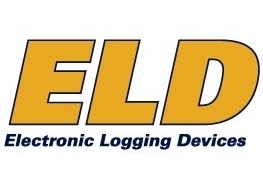Monday, April 8, 2019
A trio of bills have been introduced in the U.S. House of Representatives aimed at providing truckers relief from the nation’s electronic logging device (ELD) mandate, reports Land Line magazine, a periodical of the Owner-Operator Independent Drivers Association, or OOIDA. The ELD mandate requires commercial drivers who prepare hours-of-service records to connect an electronic logging device to their vehicle’s engine to record driving hours.

Rep. Collin Peterson (R-Minn.) has introduced HR 1697, which would exempt small-business truckers from the ELD requirement, and HR 1698, which would exempt certain agricultural haulers. Rep. Austin Scott (R-Ga.) has introduced HR 1673, which would clarify the definition of “agricultural commodity” as it relates to the ELD mandate and hours-of-service regulations, thereby amending the Motor Carrier Safety Improvement Act of 1999.
Peterson’s Small Carrier Logging Device Exemption Act would exempt businesses that operate 10 or fewer commercial trucks. The Agricultural Business Electronic Logging Device Exemption Act contends that transporting live animals and perishable products requires flexibility the mandate does not allow. Both bills were co-sponsored by Rep. Greg Gianforte (R-Mont.) and have been referred to the House Committee on Transportation and Infrastructure.
“This important legislation will eliminate regulations for small trucking companies and will help reduce unnecessary stops and delays, which threaten the agri- cultural products they help to transport,” Peterson said. “These bills are a win for small businesses in rural America and our farmers.”
“Transportation carriers are vital to the movement of goods and services from coast to coast and everywhere in between, and our farmers depend on them to ensure that we are able to feed and clothe, not only our country, but the world,” Scott said. “HR 1673 would more clearly define ‘agricultural commodities’ as applied to transportation laws, extending regulatory relief for all farm commodities, including aquaculture, floriculture, and horticulture.” Scott added the current definition does not apply to all agricultural products, making it difficult for those who transport these commodities to comply with regulations.
“Currently, horticultural products have been recognized by the U.S. Department of Agriculture, the Environmental Protection Agency, and numerous other federal and state agencies as an agricultural commodity,” he said. “However, horticultural and aquaculture products such as [nursery stock], sod, turf grass, and freshwater and saltwater aquatic plants, algae, and other organisms are not included in the ‘agriculture commodity’ definition used by the Federal Motor Carrier Safety Administration.” Reps. Neal Dunn (R-Fla.), Al Lawson (D-Fla.), and Kurt Schrader (D-Ore.) are cosponsors of Scott’s legislation, which has been referred to the subcommittee on highways and transit.
(SOURCE: The Weekly Propane Newsletter, April 8, 2019)

Rep. Collin Peterson (R-Minn.) has introduced HR 1697, which would exempt small-business truckers from the ELD requirement, and HR 1698, which would exempt certain agricultural haulers. Rep. Austin Scott (R-Ga.) has introduced HR 1673, which would clarify the definition of “agricultural commodity” as it relates to the ELD mandate and hours-of-service regulations, thereby amending the Motor Carrier Safety Improvement Act of 1999.
Peterson’s Small Carrier Logging Device Exemption Act would exempt businesses that operate 10 or fewer commercial trucks. The Agricultural Business Electronic Logging Device Exemption Act contends that transporting live animals and perishable products requires flexibility the mandate does not allow. Both bills were co-sponsored by Rep. Greg Gianforte (R-Mont.) and have been referred to the House Committee on Transportation and Infrastructure.
“This important legislation will eliminate regulations for small trucking companies and will help reduce unnecessary stops and delays, which threaten the agri- cultural products they help to transport,” Peterson said. “These bills are a win for small businesses in rural America and our farmers.”
“Transportation carriers are vital to the movement of goods and services from coast to coast and everywhere in between, and our farmers depend on them to ensure that we are able to feed and clothe, not only our country, but the world,” Scott said. “HR 1673 would more clearly define ‘agricultural commodities’ as applied to transportation laws, extending regulatory relief for all farm commodities, including aquaculture, floriculture, and horticulture.” Scott added the current definition does not apply to all agricultural products, making it difficult for those who transport these commodities to comply with regulations.
“Currently, horticultural products have been recognized by the U.S. Department of Agriculture, the Environmental Protection Agency, and numerous other federal and state agencies as an agricultural commodity,” he said. “However, horticultural and aquaculture products such as [nursery stock], sod, turf grass, and freshwater and saltwater aquatic plants, algae, and other organisms are not included in the ‘agriculture commodity’ definition used by the Federal Motor Carrier Safety Administration.” Reps. Neal Dunn (R-Fla.), Al Lawson (D-Fla.), and Kurt Schrader (D-Ore.) are cosponsors of Scott’s legislation, which has been referred to the subcommittee on highways and transit.
(SOURCE: The Weekly Propane Newsletter, April 8, 2019)



